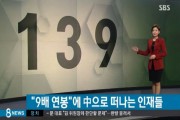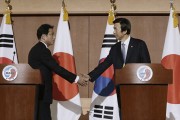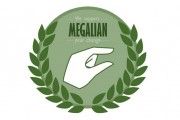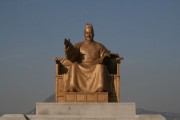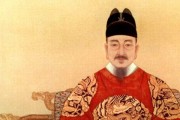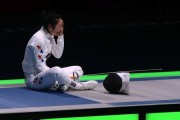News articles bragging about the efficacy of the Korean script (hangul) are hardly rare in the Korean media, particularly since the official Hangul Day has just passed. For one day, it’s tolerable, and understandable: Koreans highly value education and there are still many old people who remember the days when they could not afford to learn hangul. On the face of it therefore, a recent article on hangul winning the World Alphabet Olympics seemed at first glance to be a ‘quintessential’ Hangul Day article.
However, after further investigation, the Committee of the World Alphabet Olympics and the World Alphabet Academy (the key figures in both organisations are Korean) seems not to be as ‘fair and just’ as they would like Koreans to believe so. Although it looks like the committee invited ‘scholars of various nationalities’ to hold the contest, they seem to have hidden agendas beyond the more menial objective of ‘finding the most competent writing system.’
According to the official website of the committee, their ‘mission’ is to disseminate hangul and Christianity across the world, a goal they justify by arguing that it was the distribution of a Korean Bible, translated by a British Missionary, that catalysed the ‘March 1st Movement’ and ultimately therefore, Korea’s economic success. Furthermore, they appear to be engaging in fairly comprehensive missionary work, using Hangul, as well.
In the Reverend/Doctor Bae Soon-jik (chairman of the contest)’s keynote speech of the first ‘Alphabet Olympics’, he solely attributes the growth of the Turkish economy to ‘discarding Arabic and adopting Latin’ as their script, seemingly neglecting to mention the reforms of Kemal Ataturk. In essence, Bae argues that ‘The better alphabet a nation has, the more economic success it will have.’ And, since they already believe hangul to be the ‘best alphabet’ out there, why not take it on a mission to spread a few miracles of both the economic and celestial kind?
Translation of above: Without hangul, the March 1st Movement and Korea’s $10,000 GDP per capita would’ve been impossible and the distribution of this wonderful writing system is attributed to the early Korean Christians. Now it is the mission of the Korean Christian community to make Hangul an international writing system.
Netizens are raising doubts surrounding the credibility of the committee as well. Although not reflected in the following comments, more reactions can be found here, here, and here. For further information on their ‘mission’, check out the 1st Alphabet Olympics and the 2nd Alphabet Olympics (revised homepage).
From Nate:
Hangul wins ‘Gold’ at ‘World Alphabet Olympics’
Hangul won a ‘Gold Medal’ at the ‘World Alphabet Olympics’ which intends to choose the most comprehensive and effective script.
The World Alphabet Academy announced on the 9th of October that hangul ranked first at the second World Alphabet Olympics, held from the 1st to the 4th of October in Bangkok, Thailand.
The runner-up was India’s Telugu followed by the English [Latin] alphabet.
27 countries took part in the contest: including countries with their own writing systems such as Germany, Spain, Portugal, Greece, and India; with the rest of them being adopted or devised foreign orthographies.
The scholars from those 27 countries were each given 30 minutes to explain the excellence of their writing systems. The jurors were from following 6 countries: America, India, Sudan, Sri Lanka, Thailand, and Portugal.
The evaluation categories were each of the writing system’s origins, structure and patterns, combining ability, independent-nature, as well as potentials for further development and applicability.
The contest started from a simple thought, ‘Is it possible to hold an Olympic game about Orthography?’
In October 2009, 16 countries with their own scripts participated in the first Alphabet Olympics; and even back then, hangul ranked first, with Greece and Italy taking silver and bronze respectively.
Lee Yang-ha, the Chief of organiser of this Olympics and a former ambassador to Lebanon said that ‘If governments were allowed to influence this contest, then it would not be fair and just enough. So we have kept it as a non-government, academic community-centred contest,’ and ‘several professors who participated as observers from National Universities in Africa showed their wishes to adopt Hangul as their national orthographies.’
Lee explained, the ‘26 letters of English orthography is capable of expressing 300 kinds of sounds and more; and hangul can theoretically express more than 11,000 sounds and, practically, 8,700 sounds. In particular, Hangul excels at time-efficient communication.’
Prof Lee Sang-ok at Seoul National University who participated as a hangul delegate said ‘Given the fact that the jurors were outstanding linguists from across the world, it is safe to say hangul is without a doubt one of the best scripts in the world.’
Each scholar who participated in the Olympics announced a ‘Bangkok Declaration’ and pledged to distribute Hangul by installing short-term Korean classes at the Department of Korean studies in their universities.
Meanwhile, former ambassador Lee added, ‘Unlike languages, writing systems rarely change. Since this year’s contest included not only invented orthographies but also devised ones, I think this year should be the de facto last year of holding this contest.’
Comments from Nate:
성원제:
Let’s be proud of hangul and use proper Korean.
나세근:
Hangul can express every sound you can imagine. I’m not surprised.
진유진:
I’m glad to read this article on Hangul Day.^^ It’s my honour to use this excellent script as our own! I’ll try my best to use proper Korean with this beautiful hangul. Thank you, King Sejong, the great.
신용희:
We have to thank Sejong the great for working hard to let us use such a nice writing system.
양윤식:
Today’s Hangul Day. Let’s pull out a 10,000 won note and show our respect to him. [King Sejong is on the note]
박종남:
Let’s make Hangul Day as a National Day. And stupid teenagers who are destroying our language, shame on you!
박지민:
Korea is such a small country, yet it sure has its strength.
변석영:
Thank you Sejong the Great! I’ll never forget Hangul Day!
박대안:
There’s no doubt in hangul’s excellence. It’s time for us to protect and develop it.
이승훈:
I’m moved by the fact that this great writing system was born out of his [Sejong] love for his people.ㅜㅜ
유한글:
Let’s love hangul!
김서희:
Today’s Hangul Day. I’ve realised its importance once again.
김진훈:
Ah.. I’m so proud of it!!
김진관:
Even the world recognises hangul. We’ve got to protect and develop it to the point it becomes ‘international writing system’ ke There were no Koreans among the jurors, yet hangul won the first prize. That’s some achievement. Today’s international language, the English writing system, won the third. ke ke ke It’ll be hurtful for some countries to adopt hangul as their alphabets. Anyways, I like this article!!
김소명:
Foreigners seem more appreciative of hangul than us Koreans. We are so obsessed with English education.
박준일:
I don’t understand why many of us prioritise English over hangul. Hangul has many strong points over English, yet it is treated like dirt in Korea.
조형철:
Ah… Today’s the birthday of this fantastic writing system, hangul and I’m going to work… ㅜㅜ
조유진:
I’m so proud of hangul! huh Let’s use proper hangul!
최인석:
I really appreciate for your work, Sejong the Great.
김오한:
Stupid politicians have been ruining hangul by distributing strangely mixed-up language. Citizen Centres? Hi Seoul?? WTF! English education for babies?? To raise the global status of a nation, it’s important to keep its own writing system and language nice and firm. And then we shall learn foreign languages.. Foreign languages are only for those people who work in global businesses… In short, we need to study the English language, not America. When real Koreans speak foreign languages, Korea’s global status will rise.
Japanese netizen comments from Yahoo.co.jp:
ken********(ken…)さん:
Seems idiotic.
If they’ve got the time and the money to hold that kind of event, then teach people the correct version of history, and return the money you borrowed from Japan, please.
日本を守ろう(nip…)さん:
‘World Orthography Olympics’
↓
???
If it’s that amazing, why hasn’t it spread all over the world?
mkr32jp(mor…)さん:
The reality is that hangul is not used anywhere other than in the Korean peninsula. Strange race.
svm*a*_486*(svm…)さん:
In fact, it was the Japanese who spread hangul. When they realise this, they’ll go mad.
kiy*10*0g*(kiy…)さん:
Dirty script, hangul (lol). Makes me want to puke just looking at it.
man*ma*u*66(man…)さん:
This sophisticated thing didn’t start being used until Japanese rule in Korea.
tadao_okm(tad…)さん:
And they were even told two or three years ago that they couldn’t just use the term ‘olympics’ like that by the IOC…In May of this year, seven Korean prostitutes were arrested in Houston, Texas. Those bitches had lied and said they were Japanese. Koreans: A race hated throughout the world.
rbdskaw(kaw…)さん:
Poor things, wanking alone again after not getting the Nobel Prize [A Japanese doctor, Yamanaka, won the 2012 Nobel Prize for Medical Science]
lon*s*me_*ie*rot(lon…)さん:
If you look closely, it’s the same as expressions in the Roman alphabet!
no_more_korean_fake_boom(no_…)さん:
Just looking at those symbols makes me want to throw up.
日本の癌はマスコミ(kaz…)さん:
Absurd.
Is there any point saying one script is better than another?
matsu(nao…)さん:
First time I ever heard of such a competition.Scripts have always been closely connected with their respective languages, and as a rule I don’t thing they’re something you can assign value to…Well, it’s fine for those who are self-satisfied, but this doesn’t really concern Japanese people, so don’t transmit it in such detail in the Japanese version of Yahoo.
斜めから失礼します(hag…)さん:
The world was busy with the Nobel Prizes.
トンちゃん大好き(cer…)さん:
Blowing their own trumpets.
Singing their own praises.
And making stuff up?
Doesn’t bother me, I’ll never use hangul as long as I live.
目から怪光線(mac…)さん:
Let’s just recognise that it’s the newest script that can be used easily. But by the same measure, it doesn’t have the weight or significance of history at all. When compared with kanji invented in China they’re as different as heaven and earth.
ボビ(tak…)さん:
A Gold medal — for the least used script and the script people want to use least in the world!
hya**take49*1a(hya…)さん:
So what?
At any rate, it’s a gold medal that they bought…
nasuichi(mas…)さん:
The Korean tendency to fabricate things and fantasize about things– that’s world class/gold medal.
おやじ(dgw…)さん:
時音☆彡あいら(zsu…)さん said:’I really understand the reason why Japan, being jealous of the superiority of hangul,tried to ban its usage and banish it to oblivion.’ HAHAHAHAHAHA You fell for it! Ummm…it was the Japanese who spread hangul…..It was the Japanese who made schools in the Korean peninsula where the literacy rate was low, and it was the Japanese who raised the literacy rate…You, as a complete pro-Korea devotee have a gold medal for abnormalities in the frontal lobe of your brain.
白露(rur…)さん:
Muwahahahaha ^^
During the Yi dynasty hangul was ridiculed for being a script for little girls, and was barely used at all. Everyone used kanji. I guess Koreans knew that, huh? What’s more, the literacy rate was extremely low. Hangul spread under Japanese rule, because the Japanese built schools in every part of the Korean peninsula, as they did on the mainland, and they carried out education in hangul. But I guess that those unenlightened Koreans who fabricate historical fact don’t know anything about that.
Can you speak Japanese? Contact us!

